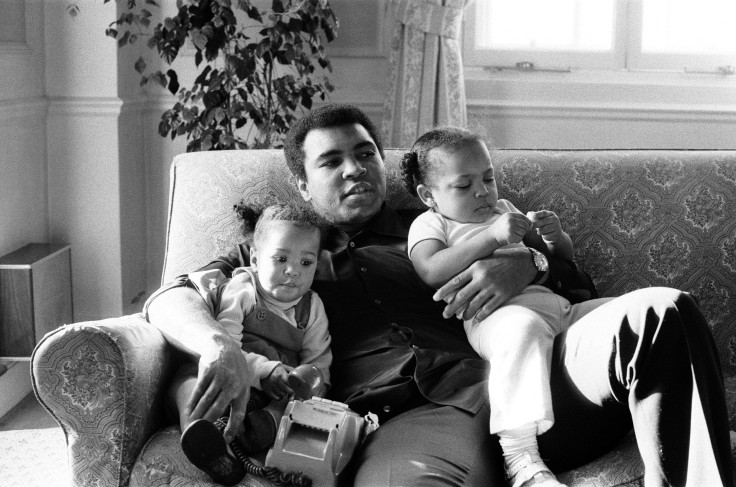Muslim Funeral In Muhammad Ali’s Hometown Draws Thousands

A Muslim funeral for Muhammad Ali on Thursday drew thousands of admirers to the boxer’s hometown, where mourners prayed over the body of a man who battled in the ring and sought peace outside it.
The jenazah, or funeral in Arabic, was held at a convention space in Louisville, Kentucky’s Freedom Hall, the complex where the former heavyweight world champion defeated Willi Besmanoff in 1961 in his last fight in the city.
An estimated 14,000 people, representing many races and creeds, attended the service, where speakers repeatedly referred to Ali as “the people’s champion.”
“The passing of Muhammad Ali has made us all feel a little more alone in the world,” said Sherman Jackson, a Muslim scholar at the University of Southern California. He praised Ali for advancing the cause of black Americans during and after the civil rights movement of the 1960s.
“Something solid, something big, beautiful and life-affirming has left this world,” he said of a man who was forced to give up more than three years of his boxing prime for his refusal to serve in the U.S. military during the Vietnam War.
Ali, known for his boxing prowess, showmanship, political activism and devotion to humanitarian causes, died on Friday of septic shock in an Arizona hospital. He was 74.
Imam Zaid Shakir, a founder of Muslim liberal arts school Zaytuna College in Berkeley, California, led worshippers in prayers such as “Allahu akbar” (“God is greatest”) over Ali’s body, which lay in a casket covered with a black and gold cloth.
Ali and his family planned his funeral for 10 years, making sure it would honor his Muslim faith while also adapting to the demands of Western media-driven culture.
A final goodbye for Ali will take place on Friday, when thousands will gather for an interfaith service at the KFC Yum Center in Louisville. Luminaries including former U.S. President Bill Clinton, Turkish President Tayyip Erdoğan and comedian Billy Crystal will attend.
“Ali will never die,” boxing promoter Don King told Reuters. “His spirit will live on.”
Among those at Thursday’s service was a Bangladeshi man named Mohammad Ali who said he flew to the United States to attend the service despite failing health. He showed pictures of his famous namesake visiting his home nearly 40 years ago.
“If I could not attend the funeral of Muhammad Ali, it would be a sad part of my life,” he said. “Today or tomorrow, I have to die. So I took the risk and came down all the way because he visited my home.”
Ali rose to the top of the boxing world when black fighters were expected to be quiet and deferential. His braggadocio, even before he changed his name from Cassius Clay, startled white America. He further shocked Americans after he joined the Nation of Islam and adopted an Islamic name in 1964.
In the 1970s, Ali converted to Sunni Islam, the largest denomination among Muslims worldwide. Late in life he embraced Sufism, a mystical school of the faith.
He was admired worldwide and gave U.S. Muslims a hero they could share with the American mainstream.
© Copyright Thomson Reuters 2024. All rights reserved.





















